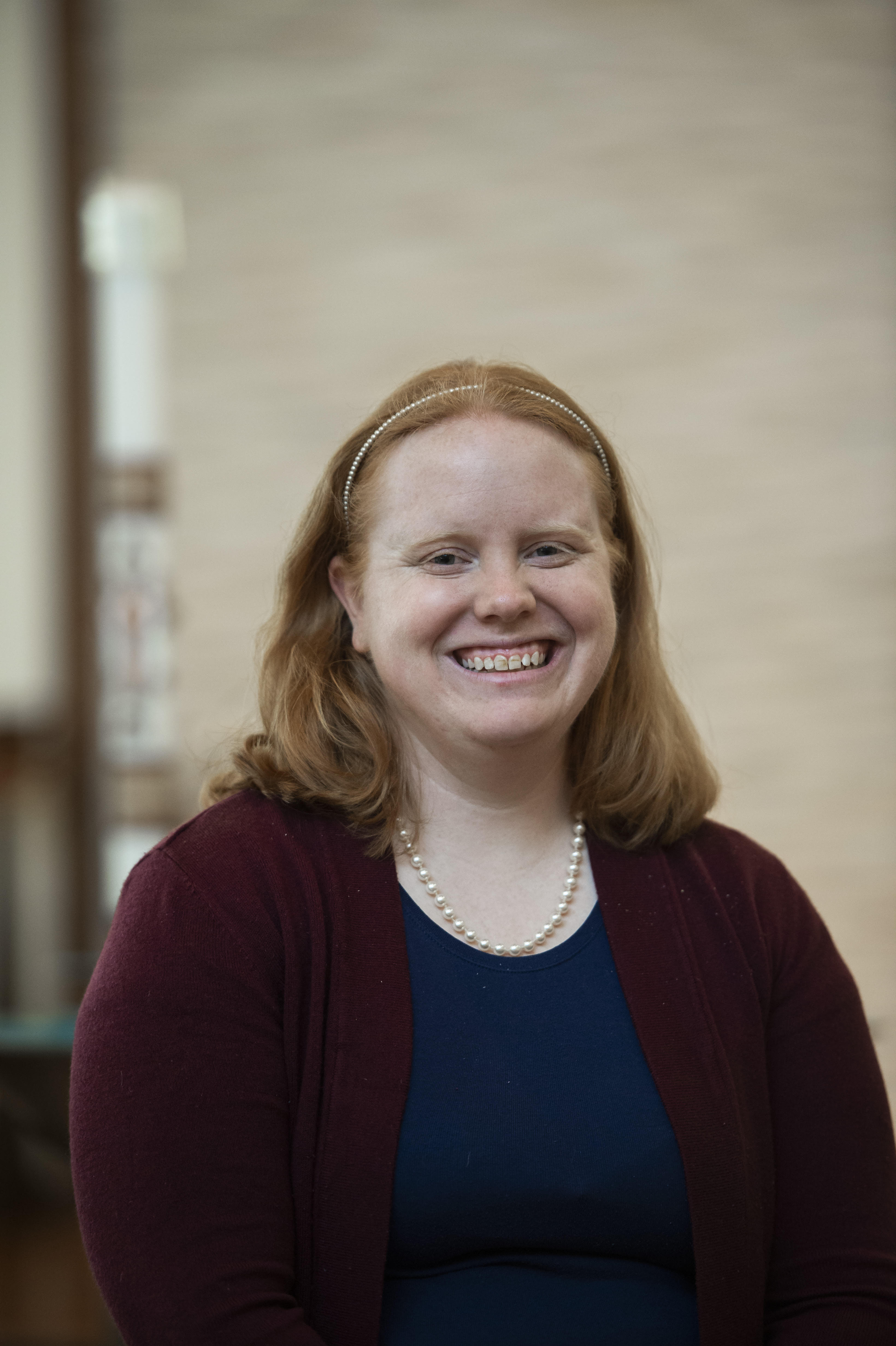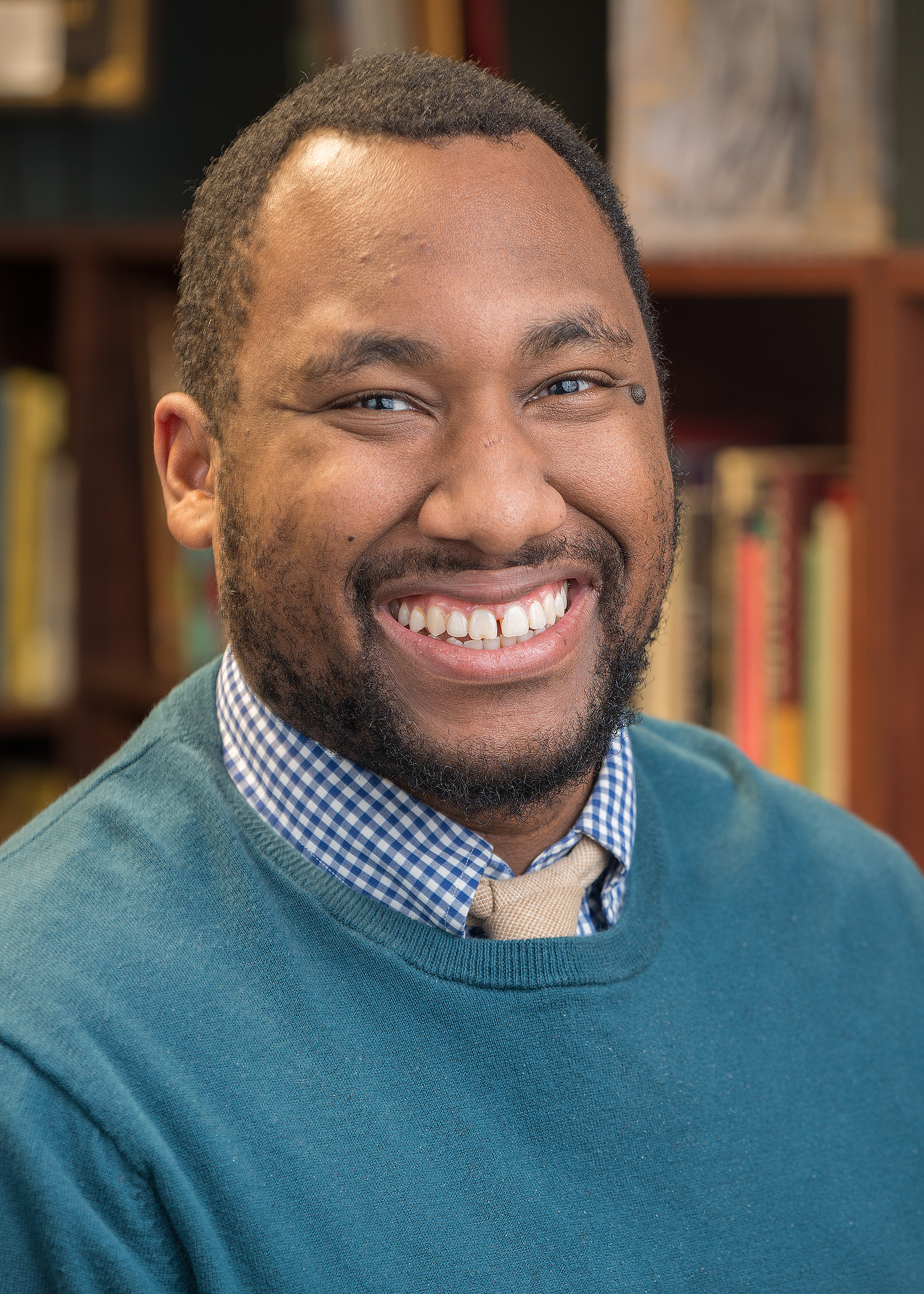Fourteenth Sunday after Pentecost
Adult and Small Child
Allison Liles

The Rev. Allison Sandlin Liles is a wife, mother, peacemaker, and priest learning to navigate life in the suburban wilds of Dallas, Texas. After working as Episcopal Peace Fellowship’s Executive Director for six years, Allison has re-entered parish ministry in the Diocese of Fort Worth. She currently serves as the Priest-in-Charge of St Stephen’s Episcopal Church in Hurst, Texas and the editor of Grow Christians, a ministry of Forward Movement.
Read: Luke 15:1-10
Reflect: In this text we hear self-righteous religious leaders grumbling over Jesus’ decision to dine with tax collectors and other sinful people. The Pharisees had laws forbidding them from doing business or having social connections with such people. Shouldn’t Jesus uphold the same laws since he too is a religious leader? Jesus offers them a pair of parables about divine mercy before closing out the text with a profound statement: “Just so, I tell you, there is joy in the presence of the angels of God over one sinner who repents.” (Luke 15:10, NRSV) God cherishes the very people whom the Pharisees despise. The Pharisees underestimate God and God’s capacity to love even the most sinful people.
Respond: Talk to children about the danger of judging other people. Share with them the message of our gospel today that all people, no matter what they look like and how they behave, are beloved to God. Our family loves Max Lucado’s book You are Special, which emphasizes how precious we are to God. Other picture books that illustrate the parables from today’s text include: Lawn to Lawn by Dan Yaccarino, The Lost and Found Lamb by Tracy Harrast, and One Lost Sheep by Rhonda Gowler Greene.
-Allison Liles
Adult and Elementary
Victoria Hoppes

Victoria Hoppes is the Director of Youth and Children's Ministries at Resurrection Lutheran Church in Indianapolis, Indiana. She has ministry experience with youth, family, and camping programs at both the parish and diocesan levels. She holds degrees from Texas Lutheran University and Luther Seminary. She also holds a certificate in Youth and Family Ministry from Forma’s certificate program. You can follow Victoria on social media (@vlhoppes).
Read: Luke 15:1-10
Reflect: At the start of this story from Luke, the scribes and the Pharisees are upset with Jesus because he “welcomes sinners and eats with them.” (Luke 15:1, NRSV) This is something that Jesus does time and time again. He spends time with the people who you would least expect: the outcast, the different, and others upon whom society frowns. Why does Jesus do this? Because “there will be more joy in heaven over one sinner who repents than over ninety-nine righteous persons who need no repentance.” (Luke 15:7, NRSV) Jesus loves us, no matter who we are.
When we are lost, when we are outcasts, and when it seems like the whole world is against us, Jesus still loves us and invites us to be a part of the family of God. Following Jesus’ example, we should love those who others don’t, too. We do this because it shows God’s love to other people--and they may respond by loving God, too!
Respond: Who are some of the people in your church, school, or community who need to be invited or welcomed to a meal? Use paper to make an “invitation” listing these people. As a family, pray that you can open your mind and hearts to follow Jesus’ example and welcome those who are on the margins. If you feel comfortable doing so, choose a person (or even a family) from the list to invite for a meal.
-Victoria Hoppes
How will you help others find Jesus this week?
Adult and Youth
Wallace Benton

Wallace Benton serves as the Assistant to the Rector for Youth Ministries at St. David's Episcopal Church in Roswell, GA. He's been fortunate to have grown up in the Episcopal Church and became interested in youth ministry after volunteering with his former youth program after college. Wallace has worked diocesan retreats and activities such as New Beginnings and Happening.
Currently, he is the lay director for New Beginnings in the Diocese of Atlanta. He is also a member of the Episcopal Youth Ministry in ATL podcast (which you should check out immediately!)
Read: Luke 15:1-10
Reflect: In this Scripture passage, the Pharisees and scribes started to become frustrated with Jesus for spending time with the tax collectors and other sinners. Jesus tells them a parable about a shepherd losing one sheep out of a herd. That shepherd will search for the lost sheep and will be excited when they find the missing sheep. He continues with a parable about a woman who would search for one silver coin that has gone missing. Jesus wraps up both stories with the excitement of God over one sinner’s repentance.
Ever been lost? Or felt as though you couldn’t find your family or friends? Or lost an item or pet? How excited were you when you were found or found the item you lost? That joy is how God feels when we turn around and commit to changing our behavior after sinning against God or the people around us.
Respond: Think about a time you felt lost, emotionally or physically. Write a letter to yourself or God describing how you felt about being lost and how happy you were to be found. If you are still in a time of feeling “lost,” then write about how you will feel once you are “found” or ways you can find God in the period of feeling “lost.”
-Wallace Benton
Adult and Adults Regina Heater (she/her/they is a self-avowed and practicing ecumenist, story-collector and story-sharer. A church administrator for a United Methodist Church in Northern NJ, she's exploring how administration, communication, faith formation and pastoral care all intersect in the church office. She often creates and posts #PrayersForDaysThatEndInY on the social internet. Connect with her at www.reginaheater.com.Regina Heater

Read: Luke 15:1-10
Reflect: How many times have you heard these two parables? Staples of sermons, Sunday School lessons, Vacation Bible School; they might cause you to tune out a bit. They are almost formulaic: we’re the silly sheep that wander, God is the Good Shepherd who seeks us out and returns us to the flock. We’re the lost coin that’s rolled away, hidden in the dusty floor, but God is the woman who carefully seeks us out, rejoicing when we’re found. Lessons learned: God really loves us. See you next Sunday! We could take it further, though, taking the love God offers another step to the transformation that comes as a result of being in relationship with God. In that transformation, we find, as St. Teresa of Avila wrote, “Christ has no body but yours, No hands, no feet on earth but yours."
In the context of these parables, we could insert ourselves into the roles of the shepherd and the woman. We could be the shepherd who realizes that a sheep that wanders might be looking for nourishment or a place to rest. The one who realizes that the flock is not complete without THAT sheep, who risks himself to bring the sheep back. We could be the shepherd who sees the people on the margins who make our communities complete, and so we reach out to them, offering them safety, nourishment, and respite. We could be the woman who knows that a lost coin is worth every effort to find simply because it is essential to her regardless of currency value. We could be the woman seeking out someone who has fallen away from our community, someone who feels they have no worth, no value. We could be the woman who helps to lift them up. We could be Christ’s hands and feet in the world, not simply receiving God’s love for us, but in turn ensuring that everyone has a chance to encounter it as well.
Respond: As you consider how you will be Christ’s hands and feet in the world, start by identifying a justice issue that weighs upon you. How is your faith community responding to these issues, and how can you help them?
-Regina Heater
Download a printable copy of this week's devotions HERE.
Tags: Lectionary Based Readings & Reflections / Latest Posts

